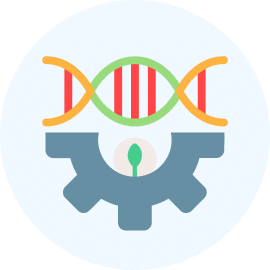Immunology Video Lecture | Crash Course for GATE Biotechnology
FAQs on Immunology Video Lecture - Crash Course for GATE Biotechnology
| 1. What are the key components of the immune system that are important for GATE Biotechnology? |  |
Ans. The key components of the immune system include white blood cells (such as lymphocytes, macrophages, and dendritic cells), antibodies, the complement system, and various cytokines. These components work together to recognize and eliminate pathogens, and understanding their functions is crucial for biotechnology applications, especially in vaccine development and immunotherapy.
| 2. How does the adaptive immune response differ from the innate immune response? |  |
Ans. The innate immune response is the body's first line of defense and responds quickly to pathogens in a non-specific manner. It includes physical barriers (like skin), phagocytic cells, and inflammatory responses. In contrast, the adaptive immune response is slower but provides long-lasting protection through specific recognition of pathogens via T and B lymphocytes. It involves the production of antibodies and memory cells for future defense against the same pathogen.
| 3. What role do monoclonal antibodies play in biotechnology and immunology? |  |
Ans. Monoclonal antibodies are laboratory-produced molecules that can bind to specific antigens. They are used in various applications such as diagnostics, therapeutic treatments (e.g., cancer therapy), and research. Their specificity allows for targeted treatment and detection of diseases, making them vital tools in both biotechnology and immunology.
| 4. Why is understanding antigen-antibody interactions crucial for vaccine development? |  |
Ans. Antigen-antibody interactions are fundamental to vaccine effectiveness. Vaccines work by introducing antigens that stimulate the immune system to produce antibodies. Understanding these interactions helps researchers design vaccines that elicit strong immune responses, enhance memory cell formation, and provide long-lasting protection against infectious diseases.
| 5. What are some common techniques used to study the immune system in biotechnology? |  |
Ans. Common techniques include ELISA (Enzyme-Linked Immunosorbent Assay) for measuring antibody levels, flow cytometry for analyzing cell populations, Western blotting for protein detection, and PCR (Polymerase Chain Reaction) for amplifying DNA sequences related to immune responses. These techniques are essential for both research and clinical applications in immunology and biotechnology.
Related Searches




















